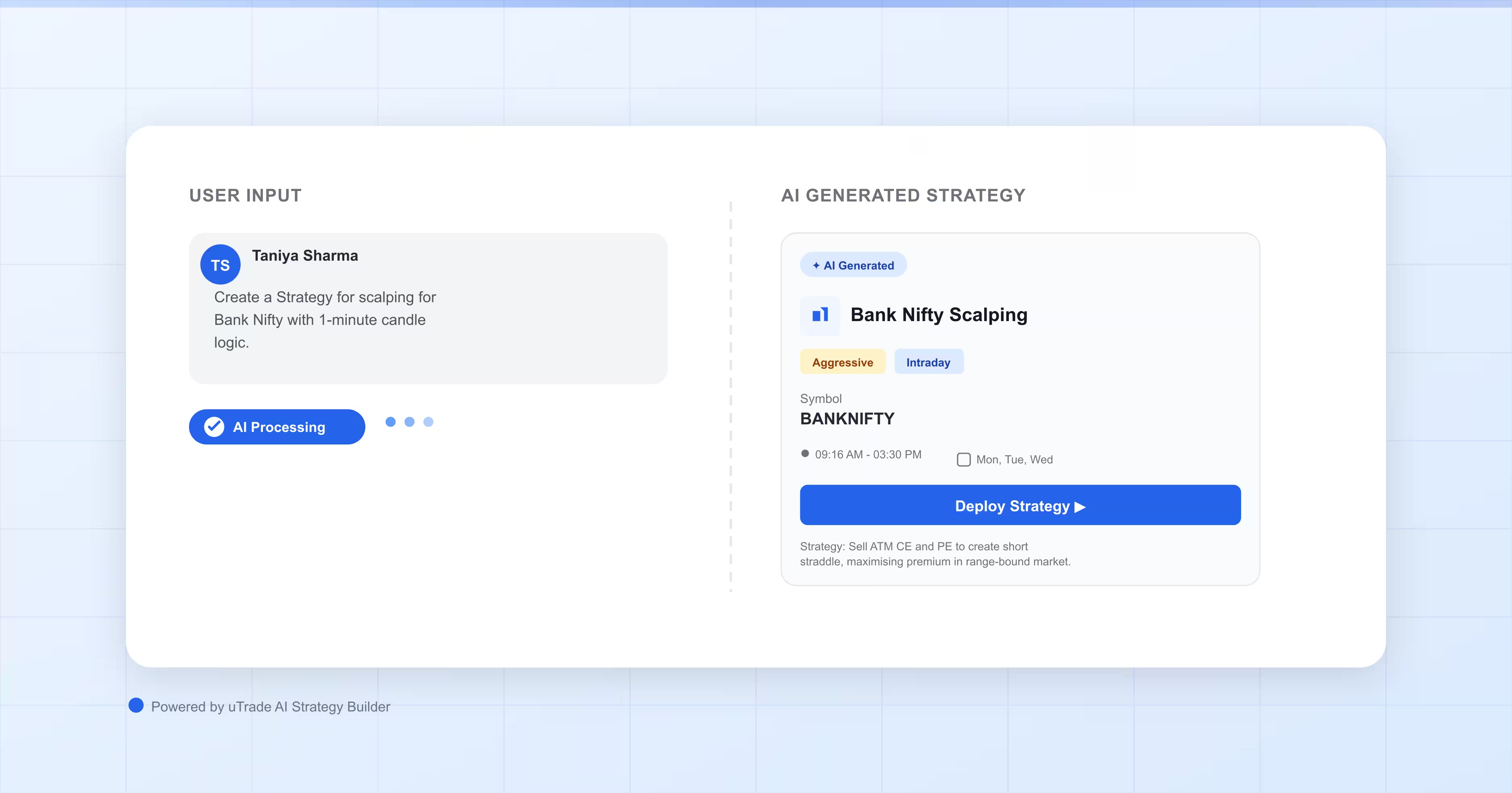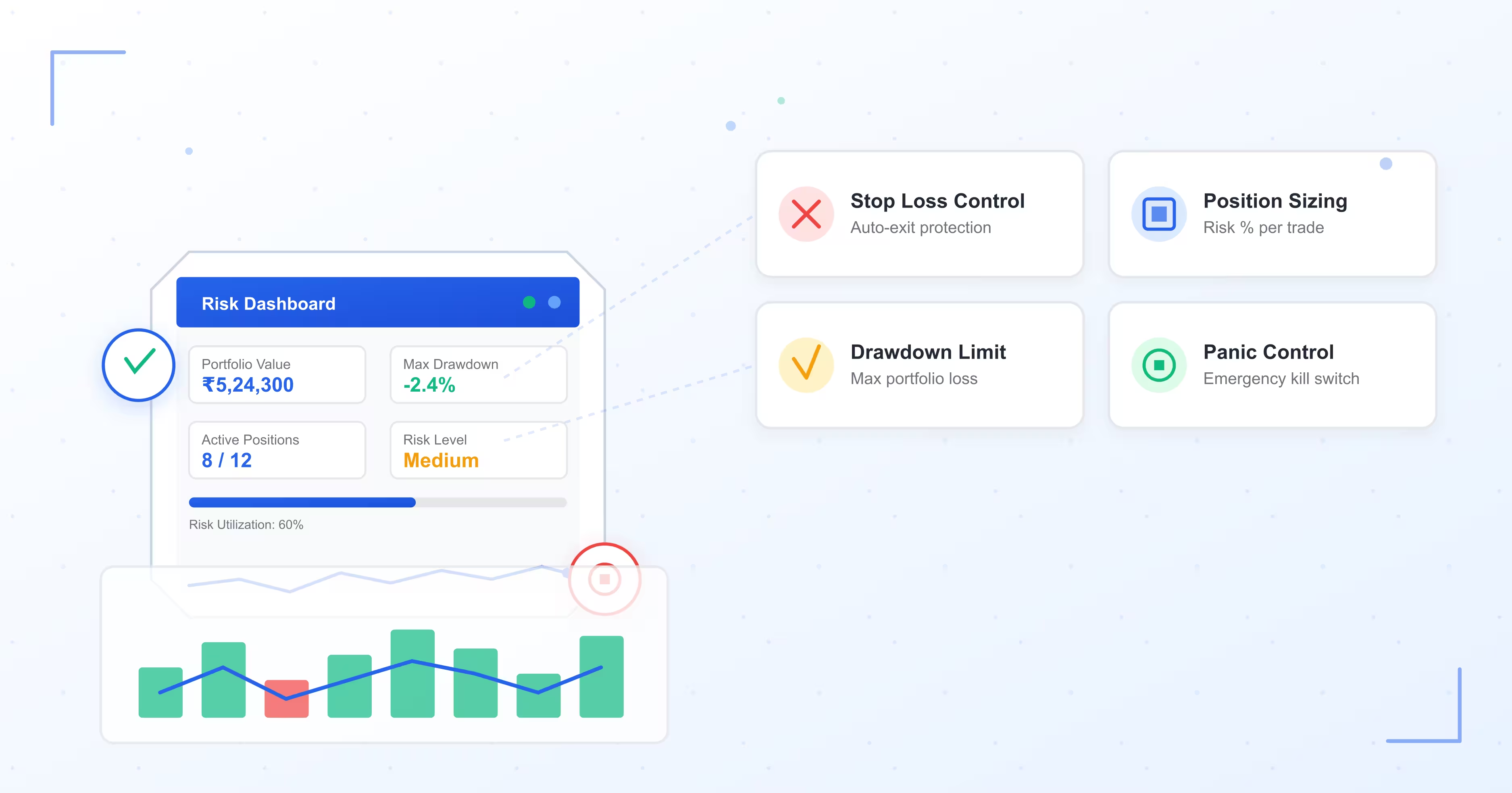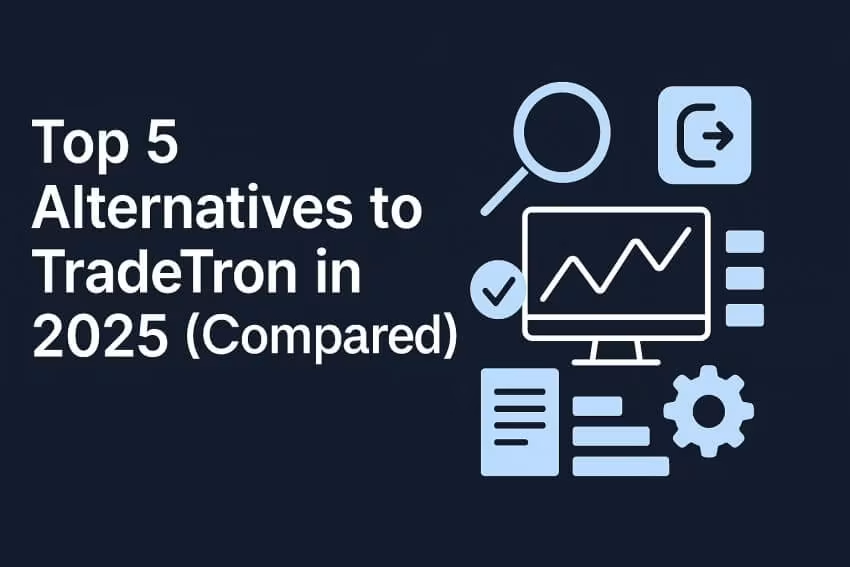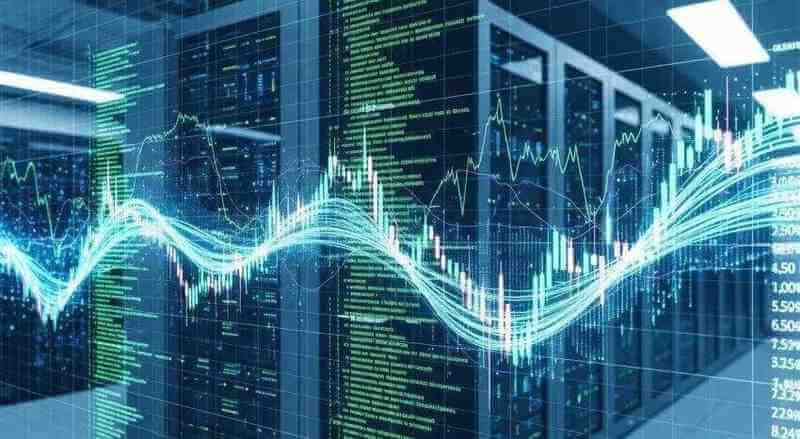In the ever-evolving landscape of algorithmic trading in India, AI has emerged as a game-changer, changing the way trading strategies are developed, executed, and optimised. At uTrade Algos, we recognise its significance and are eager to share the multifaceted role of AI in algorithmic trading platforms within the dynamic realm of financial markets.
Understanding the Role of AI in Algorithmic Trading
Data Analysis and Pattern Recognition
AI-powered algorithms in algo trading excel at analysing vast volumes of market data to identify patterns and extract actionable insights, uncovering intricate correlations imperceptible to human traders. This enables the development of sophisticated trading strategies that anticipate market movements based on subtle relationships between various factors like price movements and trading volumes. These algorithms continuously adapt and refine their models, providing traders with deeper insights, enabling them to capitalise on opportunities and mitigate risks efficiently in the dynamic world of algo trading.
Predictive Modelling and Forecasting
Predictive modelling and forecasting, integral to AI techniques in algo trading, enable traders to construct advanced models predicting future market trends with precision. By analysing data patterns, these models anticipate market fluctuations, empowering traders to adjust strategies timely. Leveraging machine learning, traders continually enhance forecasting accuracy, staying ahead of market shifts and making informed decisions in dynamic trading environments.
Risk Management and Portfolio Optimisation
AI is instrumental in risk management and portfolio optimisation in algorithmic trading by providing traders with sophisticated tools to assess and mitigate various risks. By leveraging AI algorithms, on automated trading platforms, traders can analyse market volatility, liquidity risk, and counterparty risk more effectively, allowing for proactive risk management strategies. These algorithms can also scrutinise portfolio composition, identifying potential vulnerabilities and recommending optimal risk mitigation strategies to safeguard investments and optimise returns.In essence, AI enables traders to make more informed decisions by leveraging advanced analytics to assess and manage risks systematically. By harnessing AI capabilities, traders can enhance their risk management practices and try to minimise potential losses in the dynamic and unpredictable landscape of algorithmic trading on algo trading platforms.
Automated Trading Execution
AI-powered trading systems revolutionise the execution of trading strategies by automating the entire process, facilitating rapid order placement and execution across diverse asset classes and markets. Through the utilisation of AI algorithms for order routing and execution, traders can significantly minimise latency, and the delay between order placement and execution, thus reducing the risk of slippage, the difference between the expected price of a trade and the price at which it is executed. This automation streamlines the trading process, enhances efficiency, and empowers traders to make timely decisions, ultimately maximising their potential for success in dynamic market environments.
Applications of AI in Algorithmic Trading
- Sentiment Analysis: AI algorithms analyse news articles, social media feeds, and other unstructured data sources to gauge market sentiment and investor sentiment. By identifying positive or negative sentiment trends, traders can anticipate market movements and adjust their trading strategies accordingly.
- Pattern Recognition: AI algorithms, on automated trading platforms, identify complex patterns and trends within market data, enabling traders to detect emerging market trends and identify potential trading opportunities.
- Natural Language Processing (NLP): AI-powered NLP algorithms analyse textual data, such as news articles, earnings reports, and analyst notes, to extract relevant information and sentiment. By processing and interpreting textual data, traders can make more informed trading decisions and react quickly to market-moving news events.
- Algorithmic Trading Strategies: AI algorithms develop and optimise algorithmic trading strategies based on data analysis and modelling. These strategies range from simple trend-following algorithms to complex machine learning-based models that adapt to changing market conditions in real time.
Benefits of AI in Algorithmic Trading
- Increased Efficiency: AI-powered trading systems execute trades with speed and efficiency, minimising latency and optimising order execution.
- Enhanced Precision: AI algorithms analyse vast amounts of data with greater precision, enabling traders to make more informed and data-driven trading decisions.
- Improved Risk Management: AI algorithms identify and mitigate various types of risks, helping traders manage portfolio risk and safeguard investments.
- Adaptability: AI-powered trading systems adapt to changing market conditions and evolving trading environments, ensuring continued effectiveness.
Challenges and Considerations of AI in Algorithmic Trading
- Data Quality and Bias: AI algorithms on algorithmic trading platforms rely on high-quality data for accurate analysis and predictions. Poor-quality data or data bias can lead to erroneous conclusions and flawed trading decisions.
- Model Interpretability: Complex AI models may lack interpretability, making it difficult for traders to understand how decisions are made and assess model performance.
- Regulatory Compliance: AI-powered trading systems must comply with regulatory requirements, including transparency, fairness, and accountability.
In conclusion, AI plays a transformative role in algorithmic trading, enabling traders to develop sophisticated trading strategies, execute trades with precision, and manage risks effectively. By leveraging AI-powered algorithms, on algo trading platforms, traders can gain a competitive edge in the dynamic and fast-paced world of financial markets. However, challenges must be carefully addressed to unlock the full potential of AI in algorithmic trading. As AI technologies continue to advance, their impact on algorithmic trading platforms is poised to grow, thus reshaping the future of finance and paving the way for innovation and efficiency in trading strategies and operations.For personalised assistance, uTrade Algos is here to support you in your algorithmic trading strategies.












